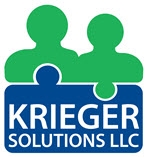In an earlier post about recruiting board members, I noted that it’s important for people to see concrete results from volunteer efforts – that something specific was accomplished. They should also feel valued and appreciated for their efforts.
Key to this is board members having a clear understanding of what’s expected of them and realistic expectations for what they’ll get from this experience. People take actions because they believe it will be positive for them. Those who act philanthropically do so because they believe there will be some meaningful outcomes from their efforts. Board members need to see that they will get a meaningful return on their investment.
To help ensure that board member expectations line up with agency expectations, it’s critical to have two documents:
- A “job description” for the board overall – your mission, vision, values and key programs/services; and the board’s role in helping sustain this.
- A job description of a board member, outlining core roles, and options for individual engagement.
The Board Job Description starts with inspiration (mission, etc.) and moves to perspiration – the work of the board. We’ll have a more detailed blog on this a bit later. For now, the key elements are what the board should and should not do.
Should do:
- Maintain the three duties of a board:
- Care (due diligence)
- Loyalty (agency’s interests first)
- Obedience (follow the law and mission)
- Maintain the strategic direction:
- Mission updates/clarification
- Strategic plan
- Strategic budgeting
- Monitor and evaluate:
- The CEO
- Programs and services
- Compliance with laws, rules and regulations
- Establish policies
- Ensure adequate financial resources
- Maintain the board
- Promote the agency
Should not:
- Supervise, direct or evaluate staff other than the CEO
- Approve routine expenditures or activities
- Communicate policies directly to staff other than the CEO
Board Member Job Description with key strategies noted to ensure success
Attend and actively contribute to all Board and committee meetings as assigned. This includes, arriving prepared, asking substantive questions and sharing your expertise.
- For this to be meaningful, board and committee meetings must have agendas that include substantive discussions, not simply reporting and approving.
Support decisions made by the board (after giving your input), even if you disagree.
- Decision making must invite input, be well facilitated and explained.
Represent the agency in a positive manner to external audiences. Act as an advocate, friend and supporter. Bring community input back to the agency.
- Members must be knowledgeable of and updated on agency efforts. Community and board member input must be valued and considered in board and committee meetings.
Participate in, attend and encourage support of all fundraisers and development activities. Make a personal financial contribution, annually and help secure other resources.
- This must be clear from the start. It’s an important role for board members. If board members don’t contribute, why should anyone else? It’s not the amount, but the participation that’s most important. Some board members are selected specifically for this role and need to put their energy there. Others may have other areas of focus, but need to contribute here as well.
Comply with all board and agency policies, including those regarding board/staff lines of authority and communication. Follow the code of ethics and don’t ask for any special treatment.
- Board members need to be fully oriented and regularly updated to stay informed.
Monitor the performance of the board and the agency; ensure accountability with laws, regulations, mission and policies.
- This is a board duty and each individual member must play a role. Again, full orientation is key to this.
Provide expertise in their areas of specialty, as requested by the CEO or board overall.
- Many board members are solicited to join due to their expertise or connections in areas such as fiscal management, fund raising, legal advice, human resources, public relations, IT, building maintenance, etc. They should be tapped for this as appropriate – when needed and with restrictions on time demands. Board members are not empowered to direct the staff, only to advise when requested to do so.
Individual board members and committees have no authority, unless acting at the specific direction of the board. Only the board as a whole has authority, and then, only to direct the CEO. Individual board members working on agency initiatives are volunteers, and take direction from the staff, not the other way around.
For a board member to feel that his/her investment is valued and valuable, s/he needs to understand the boundaries within which board members operate and the needs of the agency to which they can contribute. Agency leadership needs to focus on tapping each board member in an appropriate way so they feel valued and valuable. This takes time and attention/intention.
If the agency and board leaders take some time with each individual board member to plan their engagement, members will feel valued and more inclined to share their work, wisdom, and wealth.
